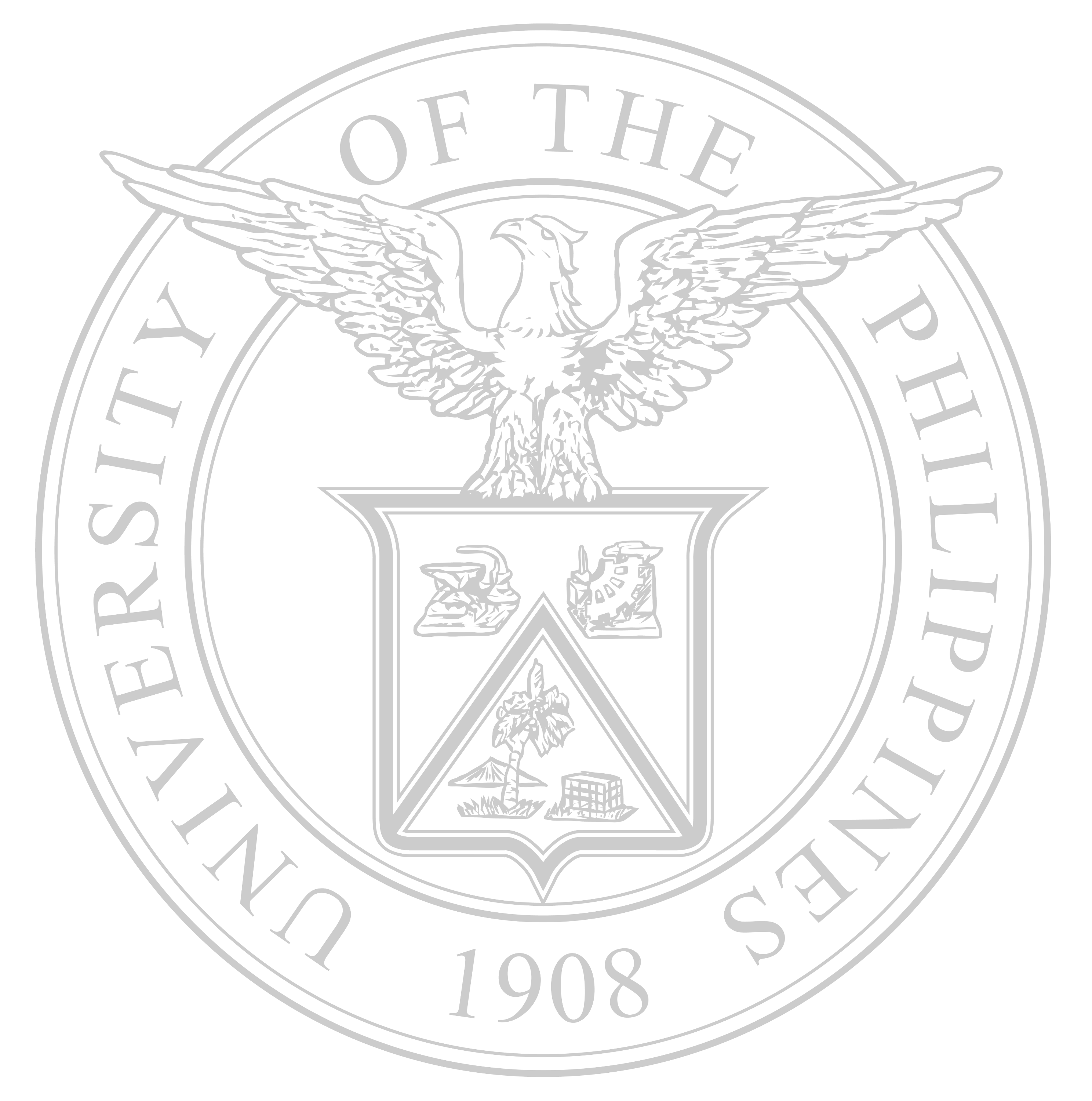

RESEARCH LABORATORIES
There are currently six (6) research laboratories in the Department, headed by DGE faculty members who are experts in their field. These research labs cater to studying and solving various problems related to land administration, land valuation, environmental modeling, geoid modeling, positioning and navigation, and human movement.
INSTRUCTIONAL LABORATORIES
Remote Sensing and Image Analysis Laboratory
The RSIAL is a multi-purpose laboratory of the UP DGE & TCAGP. The lab is located in MH 212. The RSIAL was created in 1989 with the Philippine-Australian Remote Sensing Program, and can be considered as the first remote sensing teaching laboratory in the country. At present, the laboratory’s main purpose is instructional: it is being used by undergraduate and graduate students and trainees to do their laboratory exercises on remote sensing image analysis. The lab is also used as venue for trainings and seminars that requires the use of computers and remote sensing image analysis software and programs.
Geographic Information Systems Laboratory
The GISL is another multi-purpose laboratory of the UP DGE & TCAGP. It is located in MH 210. The GISL main purpose is also instructional, and is being used by students and trainees to do their laboratory exercises in GIS. The lab is also used as venue for trainings and seminars. It is equipped with several high-end desktop computers installed with ESRI ArcGIS software as well as open source software like Quantum GIS.
GNSS Instructional Laboratory
The newly established Global Navigation Satellite System (GNSS) Instructional Laboratory is intended to be a learning, development and maker space for students and researchers who want to utilize the GNSS technology for different applications and system design. It is also a venue for research collaboration for both local and international partners. Here, students learn hands-on skills and practical knowledge building on the concept learned from GNSS experts.
RESEARCH LABORATORIES

Applied Geodesy and Space Technology (AGST)
Head: Dr. Enrico C. Paringit
This laboratory is dedicated to research in applied geodesy and space technology, focusing on areas such as geoid modeling, remote sensing, geographic information systems (GIS) for environmental monitoring and modeling, and other related applications.

Environmental Systems Applications of Geomatics Engineering (EnviSAGE)
Head: Dr. Ariel C. Blanco
This laboratory focuses on using Geomatics and geospatial technologies to address environmental issues. It explores spatial patterns in environmental variables to understand past occurrences and employs simulations and scenario analysis to anticipate future outcomes in the context of physical, natural, and socio-economic processes.

Surveying, Land Administration and Valuation (SurvLAV)
Head: Asst. Prof. Oliver T. Macapinlac
Specializing in the foundational fields of geodetic engineering, this lab focuses on surveying, land administration, and the valuation of land, employing precision measurement and data analysis technologies.

Geo+ Space technology Applications (Geo+SA)
Head: Dr. Rosalie B. Reyes
Engaged in research on applied geodesy and space technology, this laboratory addresses challenges in geoid modeling, remote sensing, and GIS-assisted environmental monitoring and modeling.

Computational Geodesy Research and Development (CGRD)
Head: Dr. Czar Jakiri S. Sarmiento
This laboratory conducts research in applied geodesy and space technology applications such as geoid modeling, remote sensing observations, processing and analysis, geographic information systems (GIS)-assisted environmental monitoring and modelling, among others.

Geomatics for Sustainability and Renewable Energy (SuRE)
Head: Dr. Jeark A. Principe
This laboratory focuses on sustainability and renewable energy studies, targeting the sustainable use of Earth's resources in alignment with the United Nations Sustainable Development Goals (SDG). The lab specializes in resource assessment of renewable energy sources using remote sensing and GIS technologies.
.png)
Geomatics for Built Environment Modeling Lab (GBML)
Head: Dr. Alexis Richard C. Claridades
The Geomatics for Built Environment Modeling Lab (GBML) focuses on advancing geospatial science and technology to support data-driven decision-making in the built environment. The lab specializes in 3D/4D geospatial data acquisition, modeling, and simulation for applications such as urban planning, infrastructure management, disaster risk assessment, and digital twin development. GBML integrates geomatics, spatial analytics, and computational modeling to enhance the understanding, analysis, and optimization of built environments. Through interdisciplinary research, the lab aims to develop innovative methodologies and tools that improve spatial data interoperability, visualization, and real-world implementation in smart cities and sustainable infrastructure projects.

